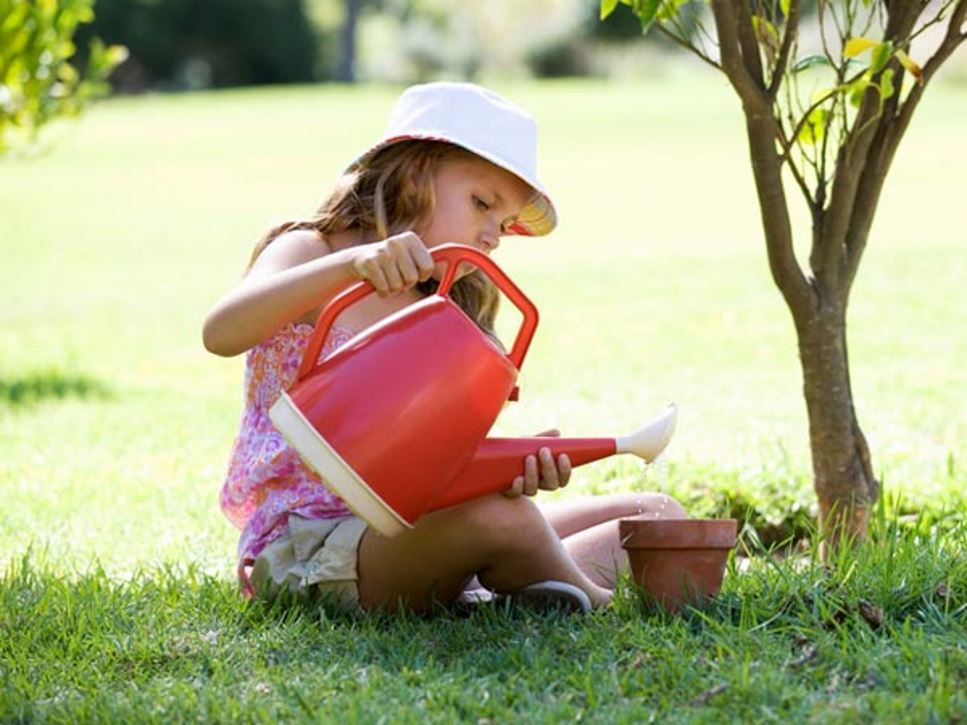Research shows children who are exposed to hands-on gardening (including at school and in their communities) eat significantly more vegetables. Get the entire family involved in the fun by starting a home garden!
A Fun Alternative
Does the space you have available at home limit your ability to garden? Or, are you worried about poor soil quality and neighborhood regulations? No worries, you can still plant a container garden! Container gardening is a great way to connect kids to where their food comes from. And, eating what you grow is a fun and wonderful experience for the whole family.
Choosing a Container
Barrels and buckets work well, and some people even use items such as wheelbarrows for containers. Hanging baskets are good options for small spaces. Clay pots can work for plants that don't need much soil. Match the size of the containers to the depth and amount of soil needed for the plants you want to grow, using seed packets as references. Before using a wood container, get advice from a local hardware store about safe types to use, as some woods may be treated with harmful chemicals. Similarly, avoid using containers that previously held toxic materials.
Finding a container with adequate drainage is key. If your container doesn't have holes in it, make a few half-inch holes near the bottom to allow water to run out. This will keep plant roots from rotting. To protect surfaces, you can put a saucer under the container to catch water — be sure to empty it regularly.
Planting the Crops
Start with a mixed blend of soil for best results, and consider starting with something easy to grow — such as sugar snap peas or sweet cherry tomatoes. Or try any vegetable that your child is interested in growing. Seed packets will tell you the best times to plant different crops. You can start seedlings inside and transplant them to outdoor containers at the right time. Or, put starter plants from a greenhouse in your container.
Caring for Your Garden
When grown in containers, plants need food in the form of commercial fertilizer or compost materials. Ask the experts at your local garden center or agricultural extension program about the best options for your garden. Container plants also need water often — up to twice per day in hot weather. Pinch off dry leaves and buds to make room for healthy new ones to thrive.
Then, when harvest time comes, celebrate by taking a bite of your delicious produce!
Find a Nutrition Expert
Looking for credible nutrition information and recommendations? The Academy of Nutrition and Dietetics' network of credentialed food and nutrition practitioners are ready to help!

